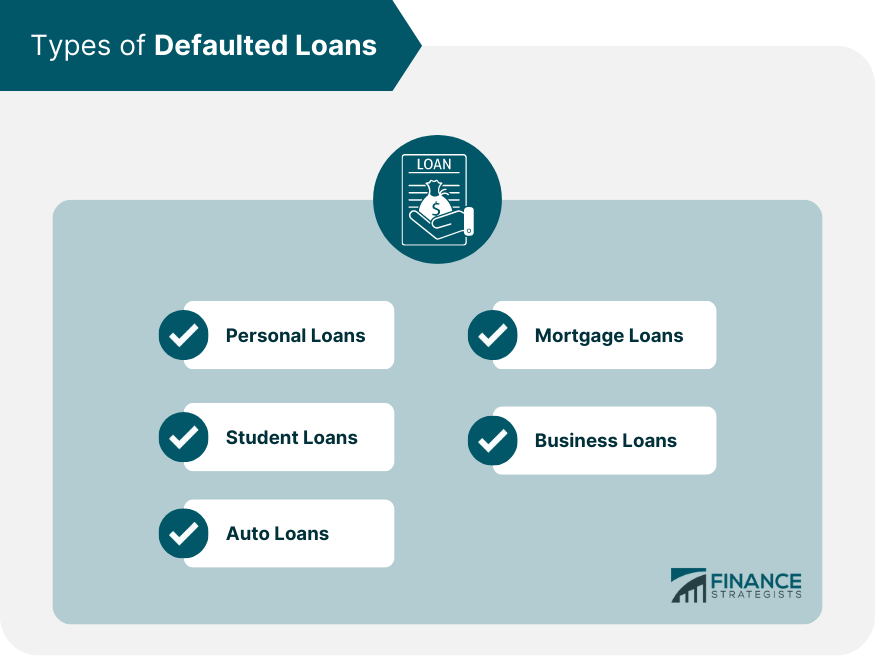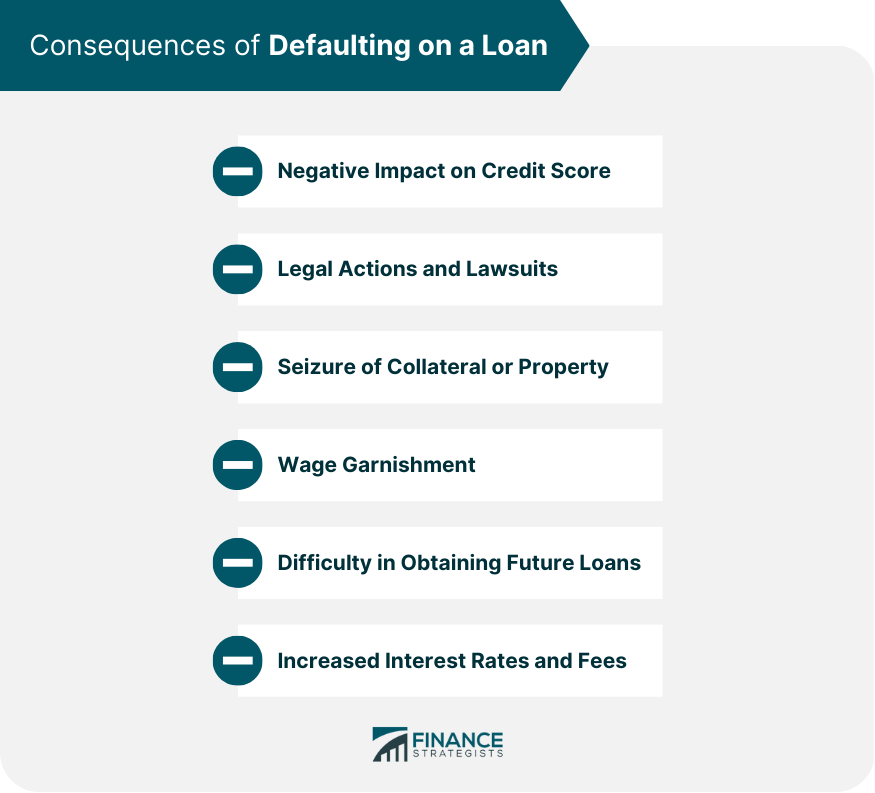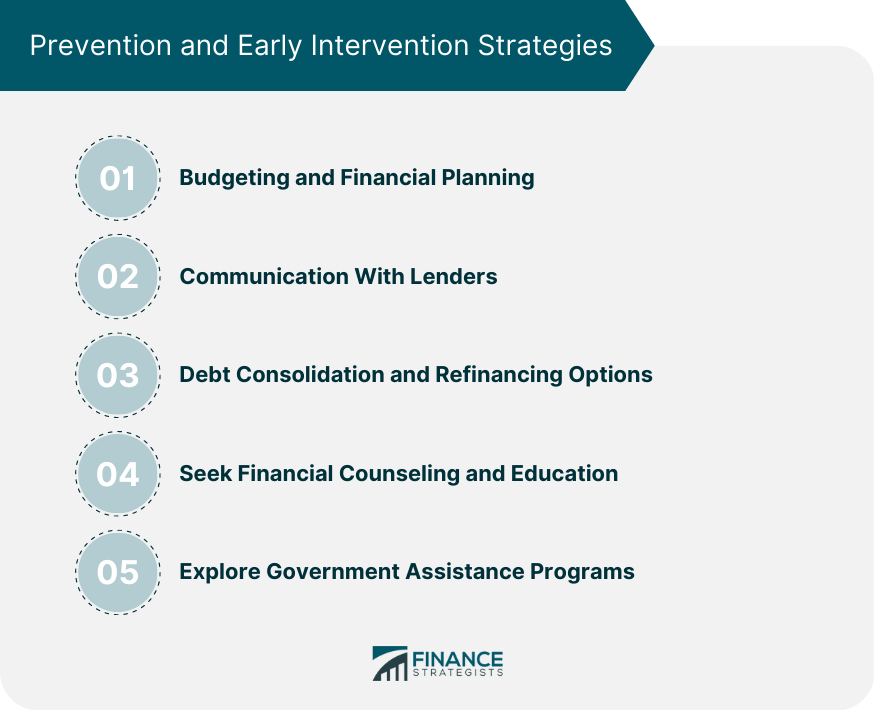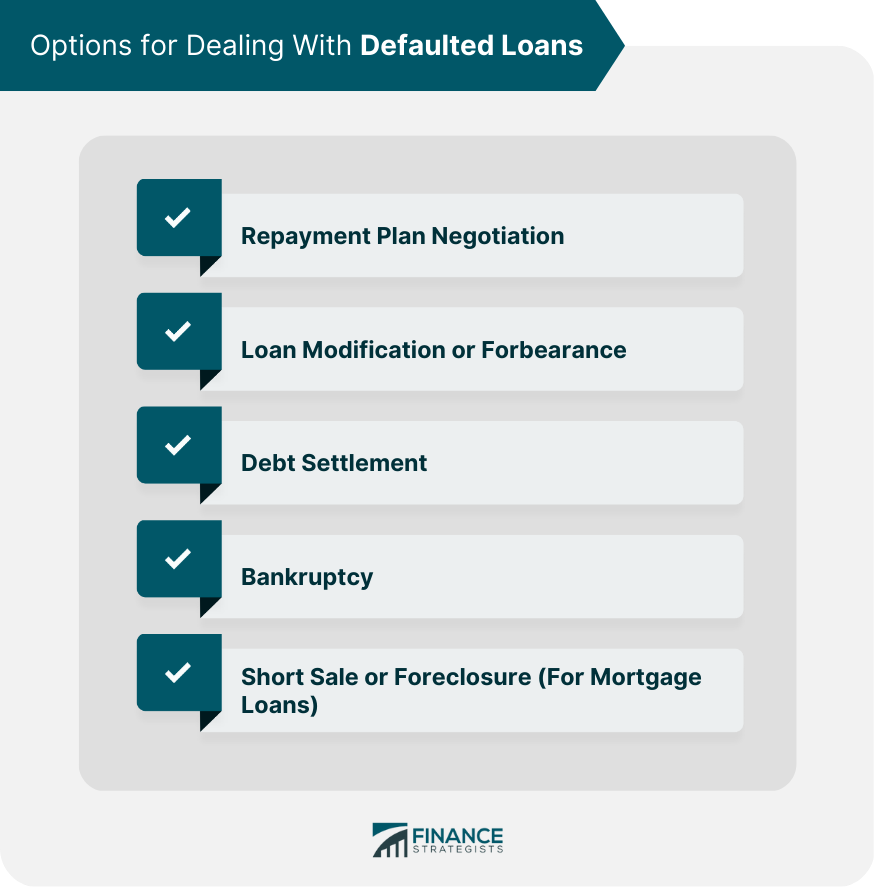Defaulted loans refer to loans that have not been repaid according to the terms agreed upon in the loan agreement. When a borrower fails to make the required payments, the lender may declare the loan as defaulted. This means that the borrower has violated the terms of the loan agreement and the lender may take legal action to recover the outstanding amount. Defaulted loans can have severe consequences for borrowers, including damage to their credit scores, legal action, and the loss of any collateral put up for the loan. Lenders may also face financial losses when borrowers default on their loans. Various factors can lead to a loan default, including: 1. Financial hardship due to job loss, illness, or unexpected expenses 2. Poor money management and budgeting skills 3. High levels of debt and overextension of credit 4. Lack of understanding of loan terms and conditions Loan defaults can negatively impact borrowers' credit scores, making it difficult for them to obtain future loans or lines of credit. Lenders may also experience financial losses as they attempt to recover the outstanding debt. Personal loans are unsecured loans that borrowers can use for various purposes, such as debt consolidation, home improvements, or unexpected expenses. Defaulting on a personal loan can lead to legal actions, wage garnishment, and a negative impact on credit scores. Mortgage loans are secured loans used to finance the purchase of a home. If a borrower defaults on a mortgage loan, the lender may initiate foreclosure proceedings to recover the outstanding debt and take possession of the property. Student loans are used to finance post-secondary education expenses. Defaulting on student loans can lead to wage garnishment, tax refund offsets, and even the loss of professional licenses. Business loans are used to finance various business operations and expenses. Defaulting on a business loan can lead to the seizure of business assets, legal actions, and damage to the business's reputation. Auto loans are used to finance the purchase of a vehicle. If a borrower defaults on an auto loan, the lender may repossess the vehicle and sell it to recover the outstanding debt. Consistently missing or making late payments can be an early sign of loan default. Borrowers should communicate with their lenders if they are struggling to make payments on time. A declining credit score can be an indicator of impending loan default, as it may signify that the borrower is struggling with debt management. An increased debt-to-income ratio can signal financial distress, which may lead to loan default if the borrower is unable to manage their debt obligations. If a lender sends multiple warnings or notices about missed payments, it could be a sign that the borrower is at risk of defaulting on their loan. Defaulting on a loan can cause a significant drop in the borrower's credit score, making it difficult to obtain future loans or lines of credit. Lenders may initiate legal actions or file lawsuits against borrowers who default on their loans in an attempt to recover the outstanding debt. In the case of secured loans, such as mortgages or auto loans, lenders may seize the collateral or property to recover the outstanding debt. Lenders may seek wage garnishment to collect on defaulted loans, which involves deducting a portion of the borrower's income to repay the debt. Borrowers who default on loans may face challenges in obtaining future loans or lines of credit, as lenders may view them as high-risk borrowers. Defaulted loans may lead to increased interest rates and fees, as lenders attempt to compensate for the increased risk associated with lending to borrowers with a history of default. Developing a comprehensive budget and financial plan can help borrowers manage their debt obligations and prevent loan defaults. Borrowers should maintain open communication with their lenders, especially when facing financial difficulties. Lenders may be willing to work with borrowers to develop alternative repayment plans or modify loan terms. Debt consolidation and refinancing can help borrowers lower their interest rates or monthly payments, making it easier to manage their debt obligations and avoid loan default. Financial counseling and education can help borrowers develop the necessary skills to manage their finances and prevent loan defaults. Various government assistance programs are available to help borrowers manage their debt and prevent loan defaults. These programs may offer loan forgiveness, income-driven repayment plans, or temporary forbearance. Borrowers may negotiate a new repayment plan with their lender, which can involve lowering the monthly payment or extending the repayment term. Lenders may offer loan modifications or forbearance to help borrowers manage their debt obligations and avoid default. This can include temporary payment reductions, payment deferrals, or interest rate adjustments. Debt settlement involves negotiating with the lender to accept a lump-sum payment for less than the full amount owed, effectively resolving the defaulted loan. Bankruptcy may be an option for borrowers who are unable to repay their defaulted loans. However, bankruptcy has long-term consequences for the borrower's credit and financial future. In the case of mortgage loans, borrowers may opt for a short sale or foreclosure to resolve the defaulted loan. This involves selling the property for less than the outstanding debt or allowing the lender to take possession of the property. Lenders typically report defaulted loans to credit bureaus, which can negatively impact the borrower's credit score. Debt collection agencies may be hired by lenders to collect on defaulted loans. These agencies use various tactics, such as phone calls, letters, and legal actions, to collect outstanding debt. The Fair Debt Collection Practices Act (FDCPA) provides borrowers with rights and protections against abusive debt collection practices. This includes limits on when and how debt collectors can contact borrowers and restrictions on the use of threats or harassment. Borrowers can rebuild their credit after default by consistently making on-time payments, reducing their overall debt, and utilizing credit responsibly. To avoid future loan defaults, borrowers should: 1. Develop a realistic budget and financial plan 2. Understand loan terms and conditions before borrowing 3. Only borrow what they can afford to repay 4. Seek financial counseling and education to improve financial literacy Financial literacy and education play a critical role in preventing loan defaults by empowering borrowers to make informed decisions about their finances and debt management. Defaulted loans can have severe consequences for both borrowers and lenders, impacting credit scores, leading to legal actions, and creating long-term financial difficulties. Understanding the types of defaulted loans, recognizing early warning signs, and being aware of the consequences is crucial for borrowers in managing their debt responsibly. Prevention and early intervention strategies, such as budgeting, communication with lenders, debt consolidation, and financial counseling, can help mitigate the risk of loan defaults. Additionally, exploring options for dealing with defaulted loans, understanding the role of credit bureaus and debt collection agencies, and focusing on long-term recovery and responsible borrowing can empower individuals to regain control of their financial health. Lastly, financial literacy and education are essential in equipping borrowers with the knowledge and skills required to make informed decisions and avoid future loan defaults.Definition of Defaulted Loans
Causes of Loan Default
Effects of Loan Default on Borrowers and Lenders
Types of Defaulted Loans

Personal Loans
Mortgage Loans
Student Loans
Business Loans
Auto Loans
Signs of a Loan Default
Missed or Late Payments
Declining Credit Score
Increased Debt-To-Income Ratio
Creditor Warnings and Notices
Consequences of Defaulting on a Loan

Negative Impact on Credit Score
Legal Actions and Lawsuits
Seizure of Collateral or Property
Wage Garnishment
Difficulty in Obtaining Future Loans
Increased Interest Rates and Fees
Prevention and Early Intervention Strategies

Budgeting and Financial Planning
Communication With Lenders
Debt Consolidation and Refinancing Options
Seeking Financial Counseling and Education
Exploring Government Assistance Programs
Options for Dealing With Defaulted Loans

Repayment Plan Negotiation
Loan Modification or Forbearance
Debt Settlement
Bankruptcy
Short Sale or Foreclosure (For Mortgage Loans)
Role of Credit Bureaus and Debt Collection Agencies
Reporting Defaulted Loans to Credit Bureaus
Role of Debt Collection Agencies
Rights and Protections for Borrowers Under the Fair Debt Collection Practices Act
Long-Term Implications and Recovery
Rebuilding Credit After Default
Strategies for Responsible Borrowing in the Future
Importance of Financial Literacy and Education
Conclusion
Defaulted Loans FAQs
A defaulted loan typically occurs due to financial hardships such as job loss, illness, or unexpected expenses, poor money management, high levels of debt, and a lack of understanding of loan terms and conditions.
To prevent a defaulted loan, focus on budgeting and financial planning, maintain open communication with lenders, consider debt consolidation or refinancing options, seek financial counseling and education, and explore available government assistance programs.
A defaulted loan can have a significant negative impact on your credit score, making it difficult to obtain future loans or lines of credit and leading to increased interest rates and fees on existing debts.
Options for dealing with a defaulted loan include repayment plan negotiation, loan modification or forbearance, debt settlement, bankruptcy, and, in the case of mortgage loans, short sales or foreclosure.
To rebuild your credit after a defaulted loan, focus on making consistent on-time payments, reducing overall debt, utilizing credit responsibly, and seeking financial counseling and education to improve financial literacy and decision-making.
True Tamplin is a published author, public speaker, CEO of UpDigital, and founder of Finance Strategists.
True is a Certified Educator in Personal Finance (CEPF®), author of The Handy Financial Ratios Guide, a member of the Society for Advancing Business Editing and Writing, contributes to his financial education site, Finance Strategists, and has spoken to various financial communities such as the CFA Institute, as well as university students like his Alma mater, Biola University, where he received a bachelor of science in business and data analytics.
To learn more about True, visit his personal website or view his author profiles on Amazon, Nasdaq and Forbes.















